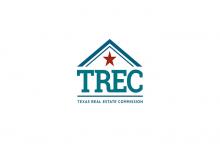FAQs
The first step in the home-buying process is getting pre-approved for a mortgage. This involves submitting financial documents to a lender, who will then determine how much you can borrow. Getting pre-approved helps you understand your budget and shows sellers that you’re a serious buyer.
The timeline for buying a home can vary, but on average, it takes about 30-60 days from the time you make an offer to closing. This can be longer or shorter depending on factors like the local market, how quickly you find a home, and the efficiency of your lender and title company.
The standard down payment is typically 20% of the home’s purchase price, but many buyers put down less. Some loan programs allow down payments as low as 3% or even 0% for eligible buyers. Keep in mind that a lower down payment may result in higher monthly payments or require private mortgage insurance (PMI).
Pre-qualification is an estimate of how much you might be able to borrow based on self-reported financial information. Pre-approval is a more detailed process where the lender verifies your financials and provides a conditional commitment for a specific loan amount.
A seller’s market occurs when there are more buyers than homes available for sale, leading to increased competition among buyers. In a seller’s market, homes may sell quickly, often at or above the asking price, and sellers may have more leverage in negotiations.
During a home inspection, you should focus on the condition of the home’s major systems, such as the roof, foundation, plumbing, electrical, and HVAC. Look for any signs of damage, wear and tear, or potential issues that may require repairs. The inspector will provide a detailed report that you can use to negotiate with the seller if necessary.
Real estate agents typically earn a commission, which is a percentage of the home’s sale price. The commission is usually paid by the seller and is split between the seller’s agent and the buyer’s agent. The standard commission is around 5-6%, but this can vary depending on the market and the agreement with your agent.
Earnest money is a deposit made by the buyer to show their commitment to purchasing the home. It is typically 1-3% of the purchase price and is held in escrow until closing. If the sale goes through, the earnest money is applied to the buyer’s down payment or closing costs. If the sale falls through for a legitimate reason, the earnest money is usually refunded.
Closing costs are fees associated with finalizing a real estate transaction. They typically range from 2-5% of the loan amount and include charges for things like the appraisal, title insurance, loan origination, and attorney fees. Both buyers and sellers have closing costs, although the buyer usually bears the majority of these expenses.
While it’s not legally required to have a real estate agent, working with one can provide significant benefits. Agents have access to market data, negotiation skills, and experience with the buying or selling process, which can save you time, money, and stress. They also handle the legal aspects of the transaction, ensuring that everything is completed correctly.

